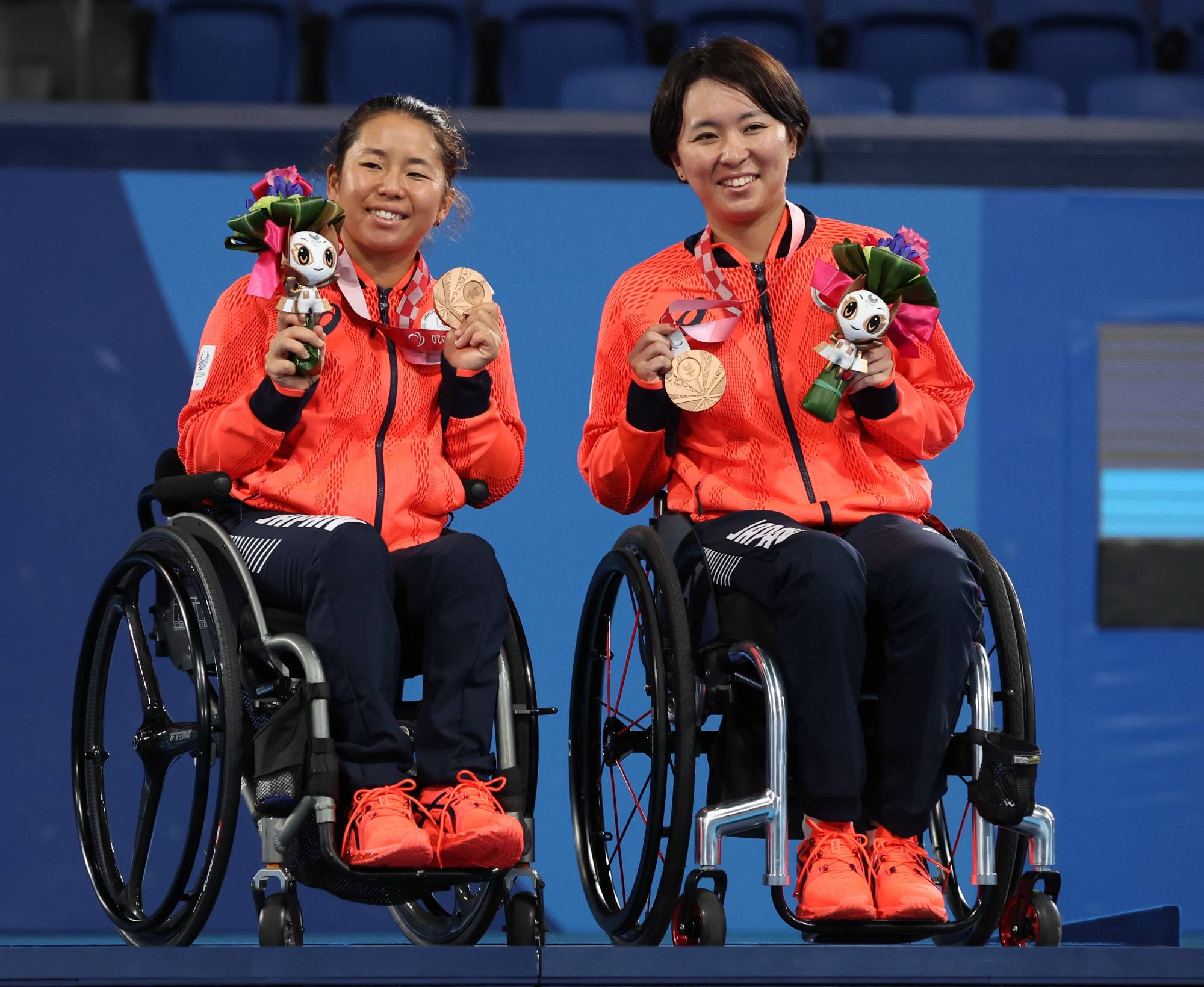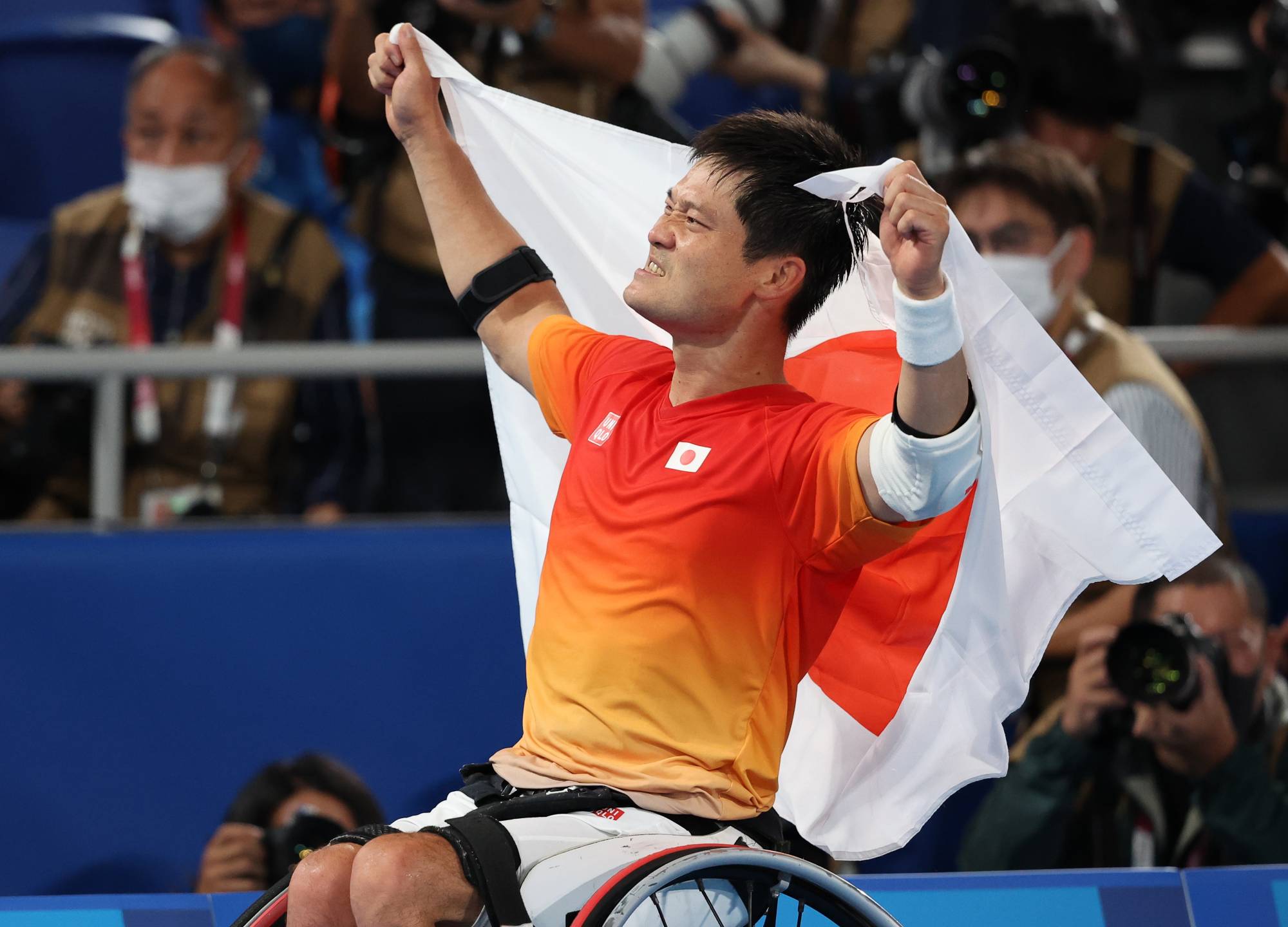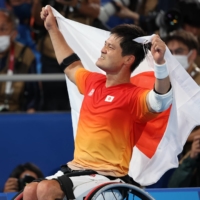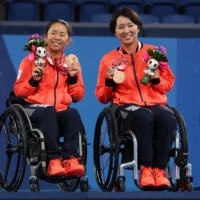Shingo Kunieda is golden again.
The Japanese ace went from heartbreak in Brazil five years ago to jubilation in Tokyo as he cruised past the Netherlands' Tom Egberink 6-1, 6-2 to win gold in men's singles at the Tokyo Paralympics at Ariake Tennis Park on Saturday.
“My dreams came true,” he said. “I really, really wanted this result. But this year, I really couldn’t win a lot, just one time in Australia. So I doubt myself a lot. But (told) myself, ‘I can do it, I know what to do,’ a lot on the court.”
Kunieda won singles gold in 2008 and 2012 before being upset in the quarterfinals of the Rio Games in 2016. He made it his goal to bounce back on home soil and did not drop a set on the way to his latest Paralympic title. He was hampered by an elbow injury in Rio and was so heartbroken over that loss he will not even watch video of that match. He may never stop watching replays of Saturday's triumph.
"After Rio, I was thinking (I might) retire many times because of injury,” Kunieda said. “So I can’t believe this result. I want to say to myself, “good job.”
The volunteers and Japanese team officials in the venue let out a roar when Kunieda won the final point to secure the gold. He played with the pressure of being an overwhelming favorite at a home games and his emotions broke through when it was all over. Kunieda broke down in tears as he draped a Japanese flag around his shoulders and the tears continued to flow as he sobbed into the Hinomaru.
“It was three times or 10 times more pressure than a normal Paralympics in another country,” Kunieda said.
Kunieda lost the first game of the match but began to dominate once he found his rhythm and Egberink began to make mistakes. He won the next six games and closed out the first set in just 30 minutes.
He remained in control during the second set and cruised to victory in 1 hour, 18 minutes.
"He's on fire," Egberink said. "He really wanted it and I think he was under pressure as well."
Egberink made liberal use of his backhand slice but did not have anything else in his arsenal that gave Kunieda much trouble.
"I knew what to do, but it really didn't go a good way in the beginning," Egberink said. "I should be happy with the level I played in the end. I saved six or seven match points. I knew he should have taken them. You have to fight for it, I'm not going to give it to him and I think he deserved it.
"I'm not losing silver, I'm winning silver and I think I should be really happy with that."
Kunieda entered the match with a 9-0 advantage in head-to-head meetings between the two and had never dropped a set against Egberink.
Earlier on Saturday,Yui Kamiji and Momoka Ohtani defeated China's Wang Ziying and Zhu Zhenzhen 6-2, 7-6 (6-3) to secure the bronze medal in women's doubles.
Kamiji added the bronze medal to the silver she earned in the singles competition on Friday.
"I couldn't sleep last night because I was frustrated," Kamiji said. "I knew I had to be in a different mindset today because it was Momoko's first Paralympic medal match. I didn't want to ruin her experience."
Diede de Groot of the Netherlands beat Kamiji for women's singles gold and returned to the court Saturday and won another gold in women's doubles alongside Aniek van Koot.
"I feel tired," she joked. "No, I feel so, so happy. Most of all, I'm so proud of Aniek, because I was so tired today, and she just took all the balls. She said ‘me, me, me’. And I was like, ‘yes please, take them.’ She did so well today, I'm really proud.”
The Dutch pair won 6-0, 6-1 in a match that lasted just 1 hour, seven minutes.
"I think our plan just worked," van Koot said. "We just said to each other, 'A plan B wasn't even necessary.'"
The battle for the men's bronze medal was an all-British affair between Gordon Reid and Alfie Hewett. The pair were squaring off one night after earning silver in the men's doubles competition.
Reid was the only one who left with a medal on Saturday after beating his partner 6-4, 3-6, 7-5.
“The thing we said to each other then (after the doubles final on Friday) was that the last thing we wanted to do was come here and play against each other on the same court.
“But that’s sport, that’s the way it is. That’s tennis — there’s no draws in tennis, there has to be winners and losers.
“To be honest, it doesn’t feel like I am a winner today at the moment. But I am sure once the emotions settle down I will be proud of the fact I have won another singles medal and have the full collection, so it is quite a cool thing to do.”






















With your current subscription plan you can comment on stories. However, before writing your first comment, please create a display name in the Profile section of your subscriber account page.